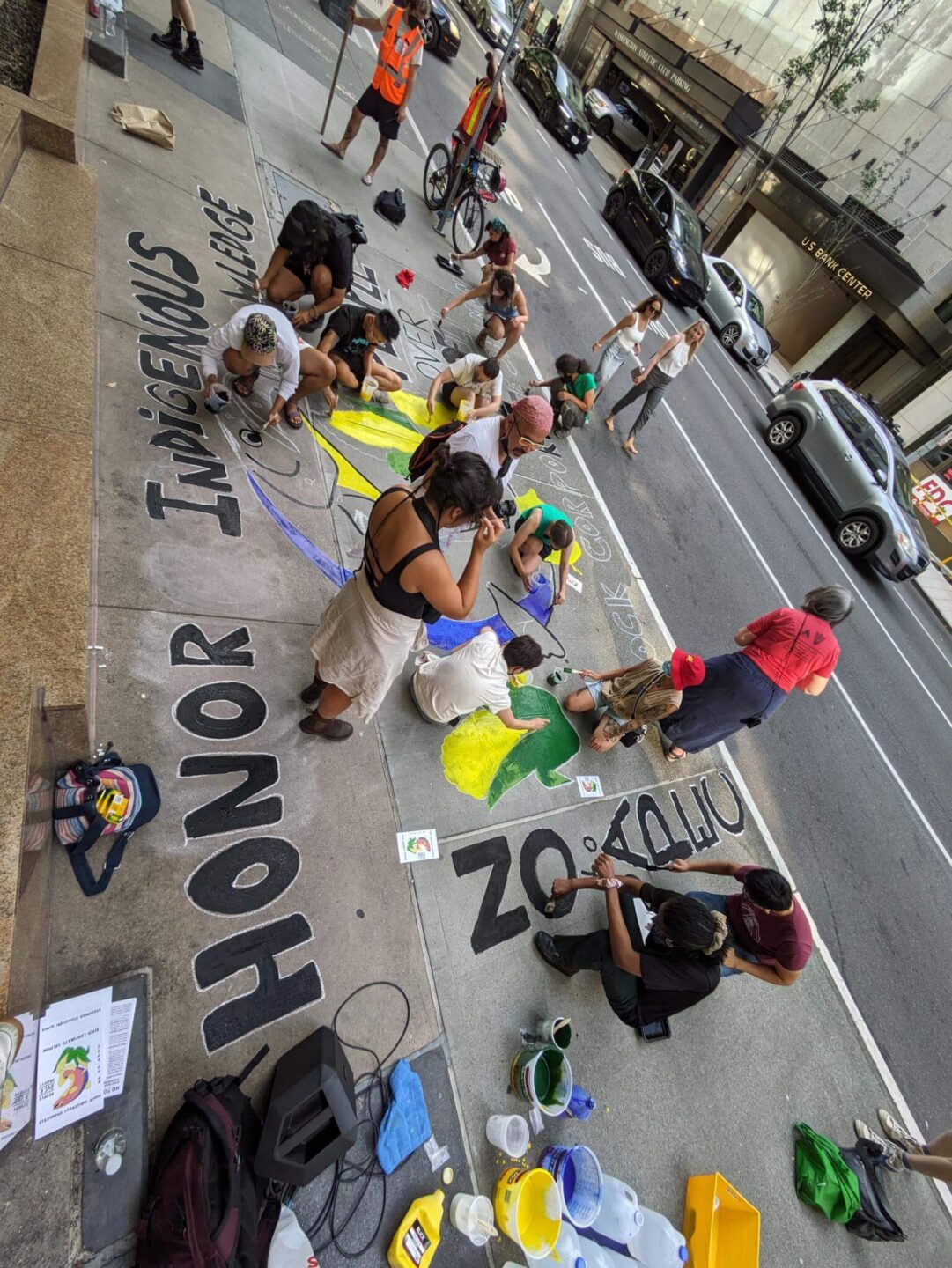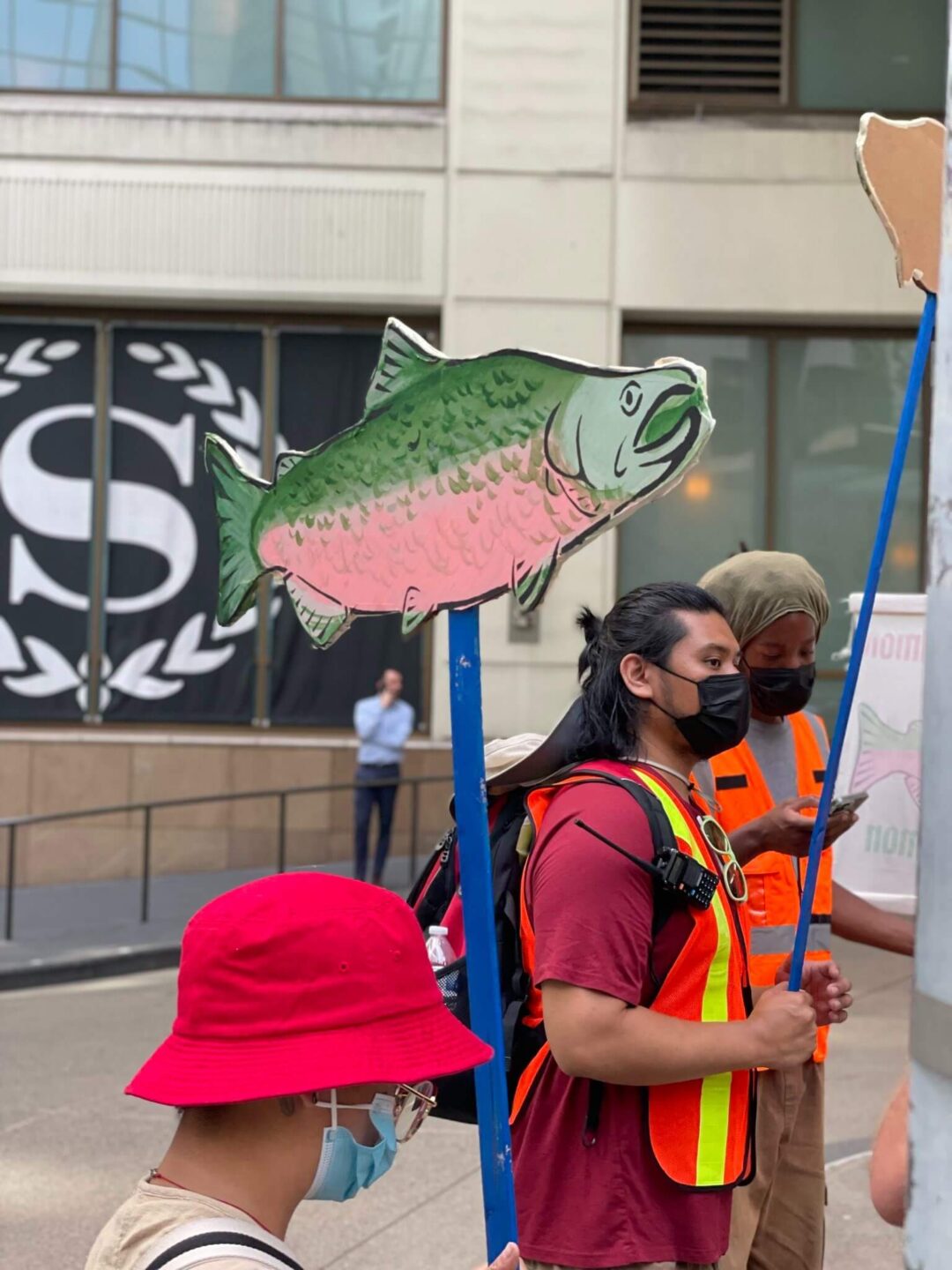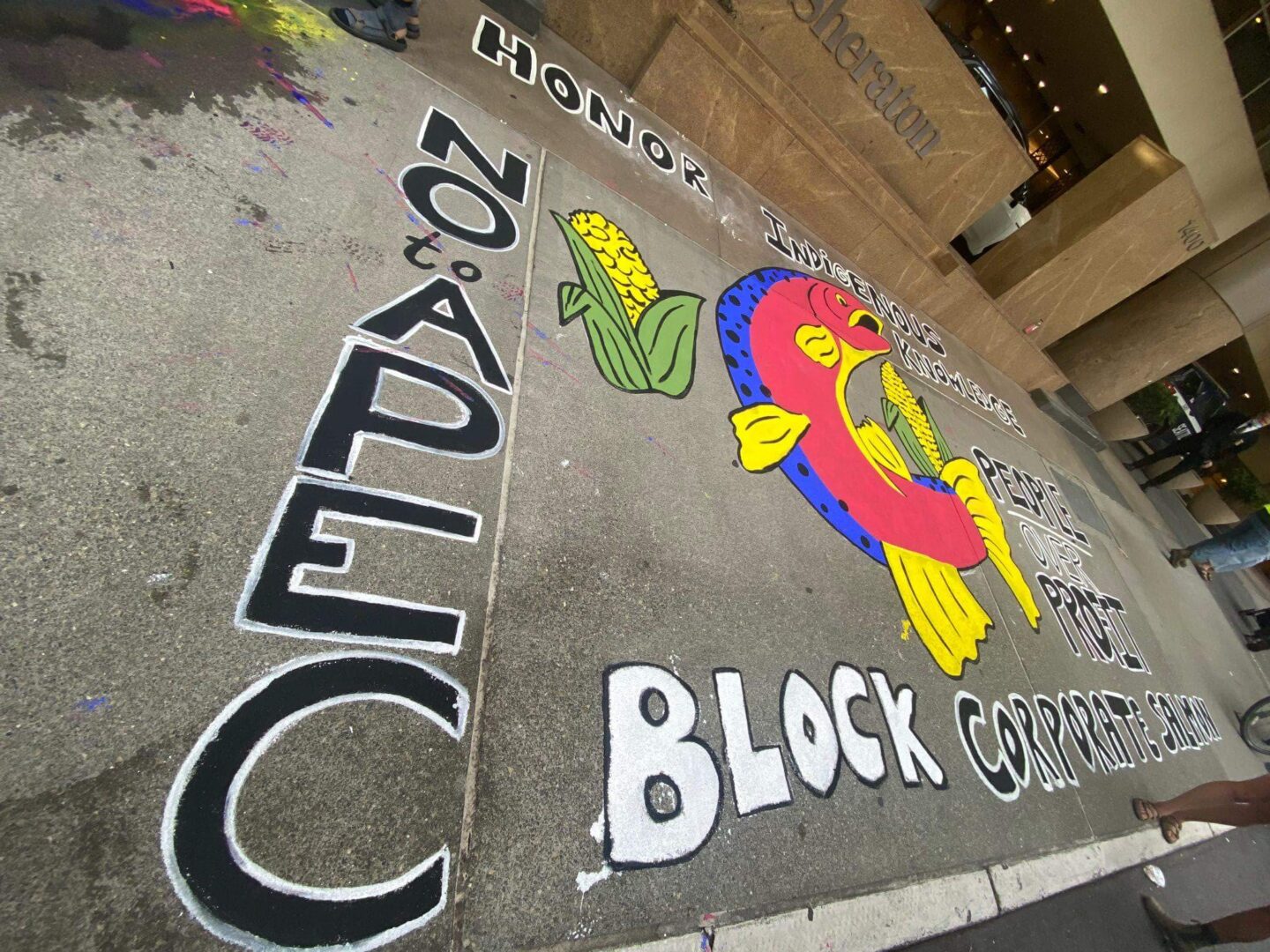SEATTLE, Wa. — On Thursday, a group of community members representing Washington’s fishing, farming, and food worker communities staged a creative action against the Asian Pacific Economic Cooperation (APEC) meetings taking place in Seattle this August.

Assembled by the Block Corporate Salmon campaign and Black Star Farmers, in partnership with Pacific Northwest People Over Profit and other local groups, the action highlighted the harms of neoliberal trade policies and corporate-controlled food systems.
“APEC is an economic forum where predominantly U.S.-based corporations collude with governments in the Asia-Pacific region to maximize profits under the guise of free trade,” said Stephanie Webb from Black Star Farmers, a small collective of people moving towards food and land sovereignty through land stewardship, mutual aid, and political education.
“The People Over Profit coalition has been confronting APEC all month long to expose the hypocrisy within their greed-driven policy priorities. They claim to be seeking ‘sustainable solutions’ and ‘food security in a climate-challenged world’, without acknowledging nor rectifying the key role their exploitative actions have played in creating climate catastrophes and oppressive food systems worldwide,” Webb said.
In particular, the protesters are drawing connections between land and sea. For instance, they point to Cargill, one of APEC’s sponsors, a global food conglomerate and dominant player in land-based agriculture that has increasingly entered the fishing industry by taking over fish feeds used for aquaculture.
“Cargill and other proponents of industrial aquaculture make greenwashed claims about the sustainability of large-scale fish farming. What they don’t tell you is how much they benefit from feeding farmed fish with their own GE soy,” said Estefanía Narvaèz, an organizer with the Block Corporate Salmon campaign, which calls for a global boycott of genetically engineered Salmon produced by a biotech company called AquaBounty.
“Monoculture corn and soy are destroying Indigenous land around the world. This system takes protein from arable land that could directly feed people and turns it into feed for farmed animals,” Narvaèz added. “Cargill is the largest privately held corporation in the United States in terms of revenue. Because they are a main feed supplier, they stand to gain financially from expansion of caged animals anywhere in the world.”
 The protesters convened with joyful, artful, and musical vibes, creating a large mural at the site of an APEC gathering. The action is part of a larger effort to confront APEC during their ministerial meetings in Seattle in beyond, organized by Pacific Northwest People Over Profit, a coalition of labor, climate justice, anti-war, human rights, and community organizations demanding that worker-centered, climate-friendly trade policies be given top billing in APEC’S priorities. The coalition held an Anti-APEC Peoples’ Summit attended by hundreds last month, at the start of the Seattle meetings.
The protesters convened with joyful, artful, and musical vibes, creating a large mural at the site of an APEC gathering. The action is part of a larger effort to confront APEC during their ministerial meetings in Seattle in beyond, organized by Pacific Northwest People Over Profit, a coalition of labor, climate justice, anti-war, human rights, and community organizations demanding that worker-centered, climate-friendly trade policies be given top billing in APEC’S priorities. The coalition held an Anti-APEC Peoples’ Summit attended by hundreds last month, at the start of the Seattle meetings.
Thursday’s action also takes place two days before the six-year anniversary of a net pen break that took place August 19, 2017 near Cypress Island, WA, on a Salmon farm owned by the company Cooke Aquaculture. The collapse, caused by accumulation of detritus on neglected net pens, released as many as 263,000 non-native Atlantic Salmon into Puget Sound, wreaking ecological havoc.
Drawing attention to the risks of profit-driven aquaculture, the organizers called on Washington Senator Cantwell to block the AQUAA Act, legislation recently introduced in Congress that seeks to expand industrial aquaculture in U.S. federal waters. The AQUAA Act is backed by a leading finfish aquaculture lobbying group, Stronger America Through Seafood, that Cargill is a member of.
“The 2017 Cooke Aquaculture spill showed us it was not a question of ‘if’ but ‘when’ the net pen breaks,” Narvaèz said. “Instead of embracing risky experiments driven by profit, we should uplift Indigenous solutions to the Salmon crisis, such as dam removal and Salmon habitat restoration, and promote local economies instead of corporate monopolies.”
This action is organized by people from Block Corporate Salmon, Black Star Farmers, Community Alliance For Global Justice, International League of Peoples’ Struggle, Anakbayan, Resist US-Led War, and PNW People Over Profit.
| Feini Yin
Block Corporate Salmon 908-745-9768 (call or text) |
Pacific Northwest People Over Profit |

